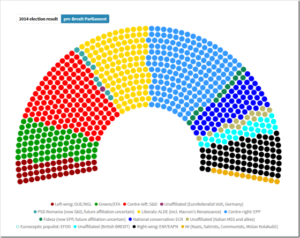by P. Homewood, May 28, 2019 in NotaLotofPeopleKnowThat
You would think the Washington Post should be able to distinguish between a handful of protesting school kids and millions of grown up voters!
In recent months, massive demonstrations over climate change have rocked European capitals, dwarfing the mobilizations of the continent’s far right. Fridays for Future — a movement inspired by Swedish teenage activist Greta Thunberg — has seen countless European teenagers walk out of school to protest climate inaction. It underscores a growing consensus among the next generation of voters that governments must do more to mitigate environmental disaster, and an impatience with political parties that refuse to recognize the urgency of the situation.
Climate change, said an editorial in France’s Liberation newspaper, “has become the principal criteria of judging political action in the European Union.”
https://www.washingtonpost.com/world/2019/05/28/climate-change-threatens-wests-far-right/

by Sanjeev Sabhlok, May 9, 2019 in TheTimesofIndia
There are two key pillars of science. First, it doesn’t matter how many “scientists” believe something. All of them could be proven wrong by a single new scientific theory or experiment. Science is always tentatively proven, and it is incumbent on everyone who calls himself a scientist to ask questions even about things that are “settled”. The great physicist Richard Feynman rightly said, “Science is the belief in the ignorance of experts”. Scientists must continually question everything and everybody.
Second, science must necessarily make accurate predictions. The global positioning system (GPS) in our mobile phones works only because Einstein’s theories of relativity are accurate to the last possible decimal. Science must not just predict the future: it must predict backwards. Our scientific understanding of cosmic microwave background radiation allows us to literally see the universe as it existed a few thousand years after the Big Bang.
With climate change, things are dramatically unclear and unsettled. Even converting the basic logic of the greenhouse effect into actual estimates for planet Earth is not settled. The IPCC’s Third Assessment Report notes that "If the amount of carbon dioxide were doubled instantaneously … the temperature of the surface-troposphere system would have to increase by 1.2 degrees, in the absence of other changes”. However, some scientists calculate that its impact would be much lower.
…
La géologie, une science plus que passionnante … et diverse

